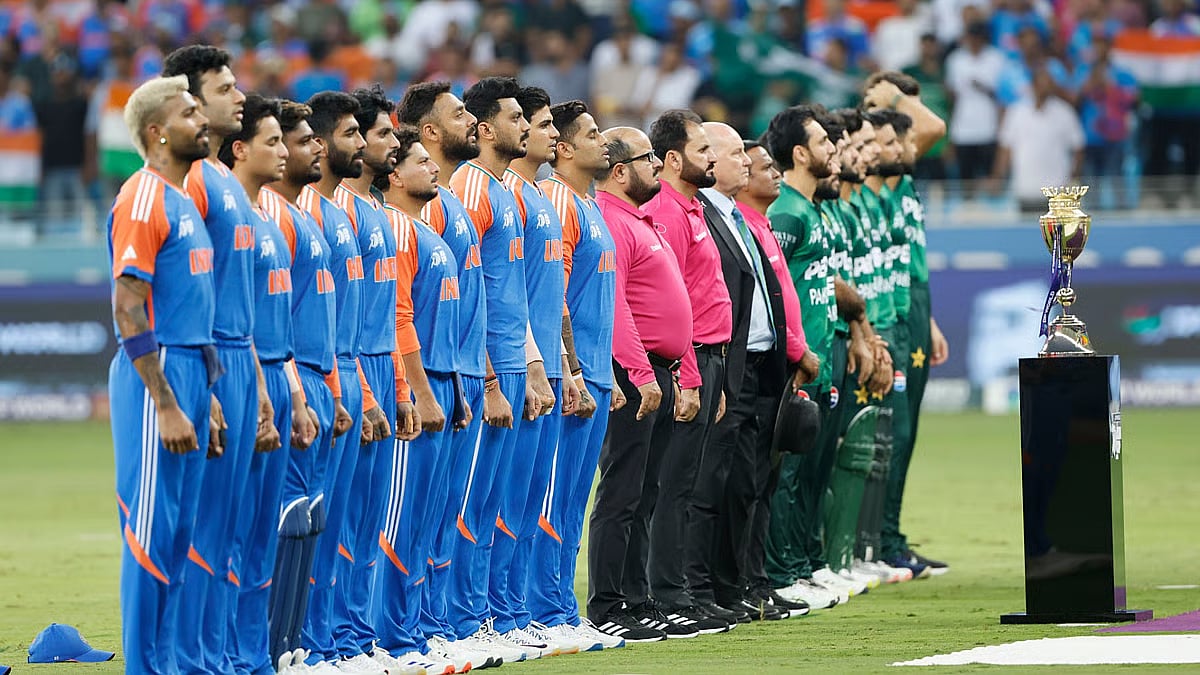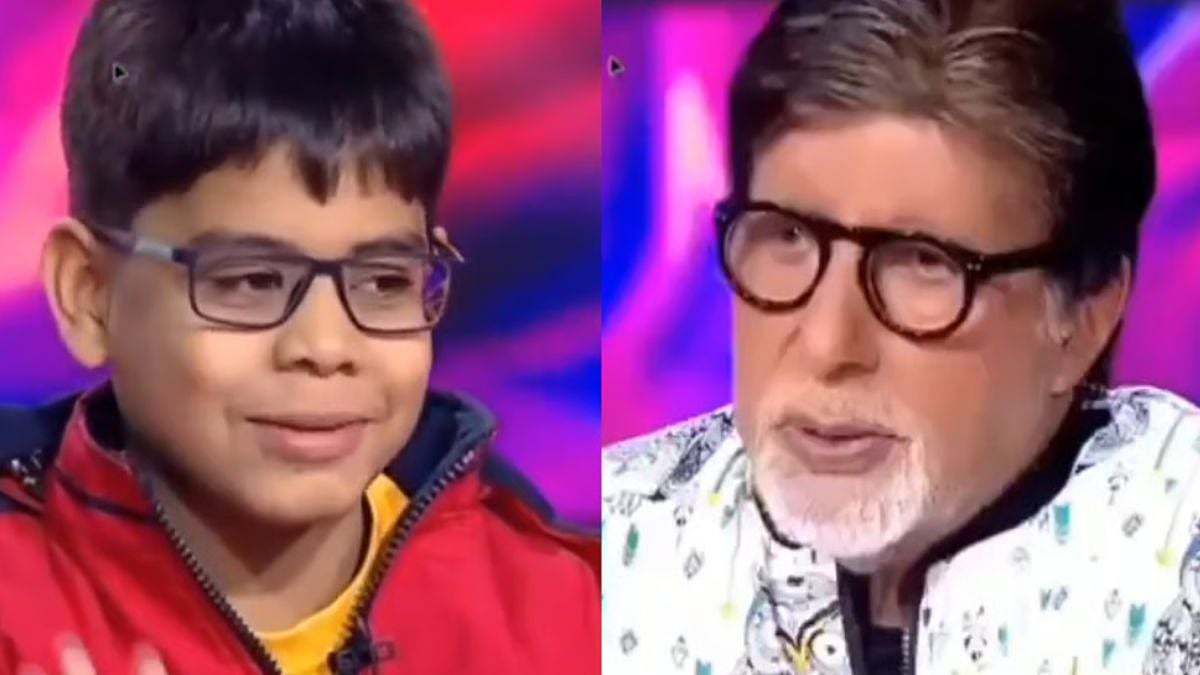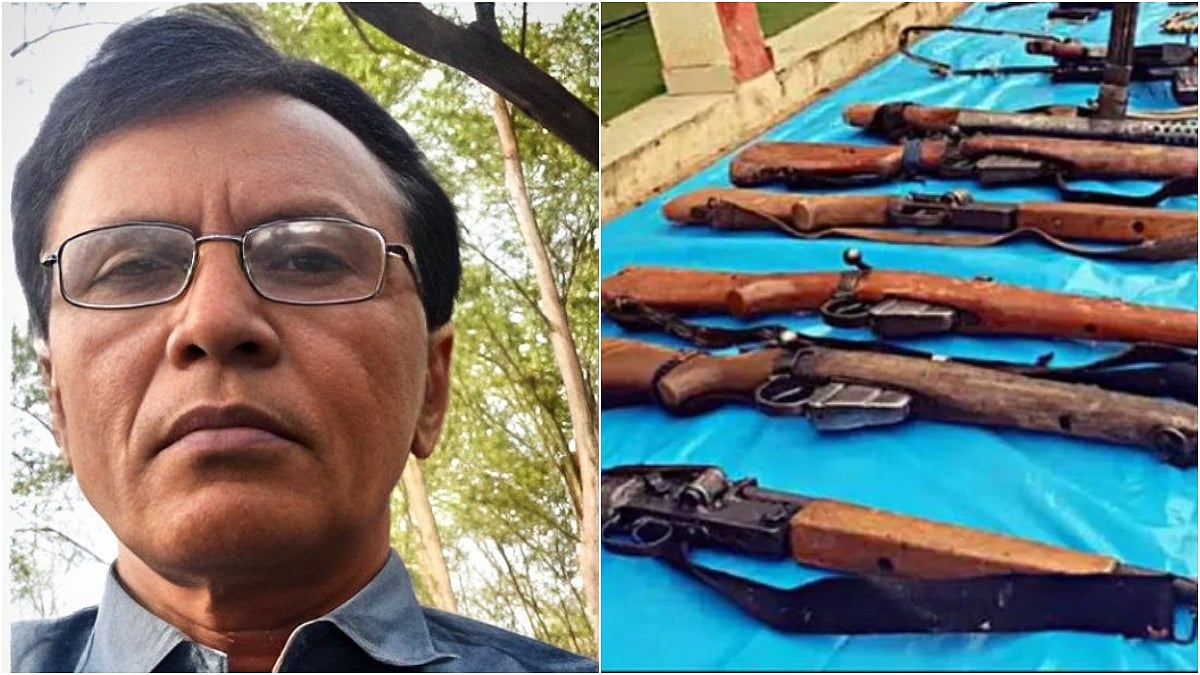Mujh se jab bhi koi ye sawaal karta hai ke aap kis zabaan mein sochte hain toh mera yahi jawaab hota hai ke main Urdu ke alawa kisi aur zabaan mein soch hi nahin paata… (Whenever I'm asked, which language do I think in, my stock reply is that I cannot think in any other language barring Urdu) — Raghupati Sahay ‘Firaq’ Gorakhpuri in a letter to his friend and Urdu poet Jagan Nath ‘Azad’.
The aforementioned statement has assumed far greater significance in these polarised times when Urdu is being systematically sidelined and branded as the “language of Muslims”. When Munshi Premchand's famous story 'Ibrat' is removed from the Urdu syllabus for class X students and Gopichand Narang, Justice Anand Narayan Mullah, Ratannath ‘Sarshaar’, Kanhaiyalal Kapoor, Krishnbihari ‘Noor’ etc. are also absent from the Urdu textbooks of the UP Secondary Education Board, one is bound to remark that it cannot be just a coincidence. By the way, Jagan Nath ‘Azad’ was also one of the finest Urdu poets of the last century who penned the Qaumi Taranaah (National Anthem) of Pakistan which was later removed to pave the way for Hafiz Jalandhari’s “Paak Sarzameen”. His father Tilok Chand ‘Mahroom’ was also an Urdu poet of high stature. Jagan Nath ‘Azad’ was an internationally acclaimed authority on Dr Muhammad Iqbal.
Coming back to ‘Firaq’ Gorakhpuri, who ironically hailed from Gorakhpur, the city that the CM of UP hails from. August 28 was the 127th birth anniversary of this great poet who taught English at Allahabad University and once audaciously said that only two and a half people in India knew English: He and Dr Radhakrishnan knew the language completely and Jawaharlal Nehru knew it partially! Yet, he always claimed that Urdu was the language of his linguistic psyche. Born into an educated and well-to-do Hindu-Kayasth family like Munshi Premchand, Raghupati Sahay learnt Urdu and Persian as fundamental languages. Both the languages stayed in his consciousness till he breathed his last. Despite his exceptional command of English, it was Urdu he chose to write his sublime poetry in.
“Jo kahta hai Urdu ko zabaan-e-Musalmaan/ Uss namuraad ko idraak-e-zabaan nahin” (Who says Urdu is the language of Muslims/ That imbecile has no feel for a language). ‘Firaq’ (his nom de plume or takhallus means ‘separation’) had a profound love for Urdu and he made it a point that Urdu must never be driven out of the collective linguistic consciousness of India and the sub-continent. “Zubaan kisi qaum ki milkiyat nahin/ Jisne seekhi, usne kahi” (Language is not the prerogative of a specific community/ Who has learnt it, has spoken it).
An exceptionally high-class poet in Urdu, Firaq didn't limit himself to writing only on Vasl-o-Firaq (union and separation). Qareeb se dekha hai ‘Firaq’ ne hayaat ko/ Tamaam pahloo simat aaye hain uski sukhanvari mein (‘Firaq’ has seen life from close quarters/ His poetry encompasses all dimensions). It was ‘Firaq’ who wrote so tellingly, “Raaz-e-vajood kuchh na poochh/ Subhe-azal se aaj tak, kitne yaqeen guzar gaye, kitne guzar gaye gumaan (Don’t ask the mystery of existence/ So many ‘truths’ and doubts have come and gone since the very first dawn of human civilisation). It was ‘Firaq’ who could write, “Devtaaon ko Khuda se hoga kaam/ aadmi ko aadmi darkaar hai” (Gods may be concerned with the Almighty/ Humans need humans ). All his life, ‘Firaq’ fought for secularism: Insaan aakhir insaan hai/ Kambakht siyasat ne muhar laga di Hindu aur Musalmaan ki (Humans are humans sans specifications/ This putrid politics has put labels of Hindus and Muslims).
‘Firaq’ was in favour of writing and speaking an intelligible form of Urdu which he called “Hindustani”. “Alfaaz-e-Farsi se labrez nahin meri zabaan / Jo awaam ki samajh mein aaye, wahi likhta hai ‘Firaq’” (My language is not laden with the recondite Persian words/ I write in a language understood by all). A prolific poet and writer, ‘Firaq’ composed over 40,000 couplets! His magnum opus Gul-e-Naghma earned him the highest literary award of India, the Jnanpith Award, and also the 1960 Sahitya Akademi Award in Urdu. During his life, he was given the positions of research professor at the University Grants Commission and Producer Emeritus by All India Radio. He aptly said about himself, “Aane wali naslein tum par rashk karengi, humasro / Jab ye khayal aayega un ko tum ne ‘Firaq’ ko dekha hai” (Generations to come will be envious of the fact that you saw ‘Firaq’ in flesh and blood). So very true and far from being presumptuous.
In these times, when linguistic chauvinism is at its zenith, reading and remembering ‘Firaq’ may drill a modicum of sense and sensibility into the craniums of those who pigeonhole languages on the basis of religion. The relevance of ‘Firaq’, therefore, becomes even more important in our fissiparous, fragile and fragmented times.
(‘Firaq’ Gorakhpuri was born on August 28, 1896.)
Sumit Paul is a regular contributor to the world’s premier publications and portals in several languages.










